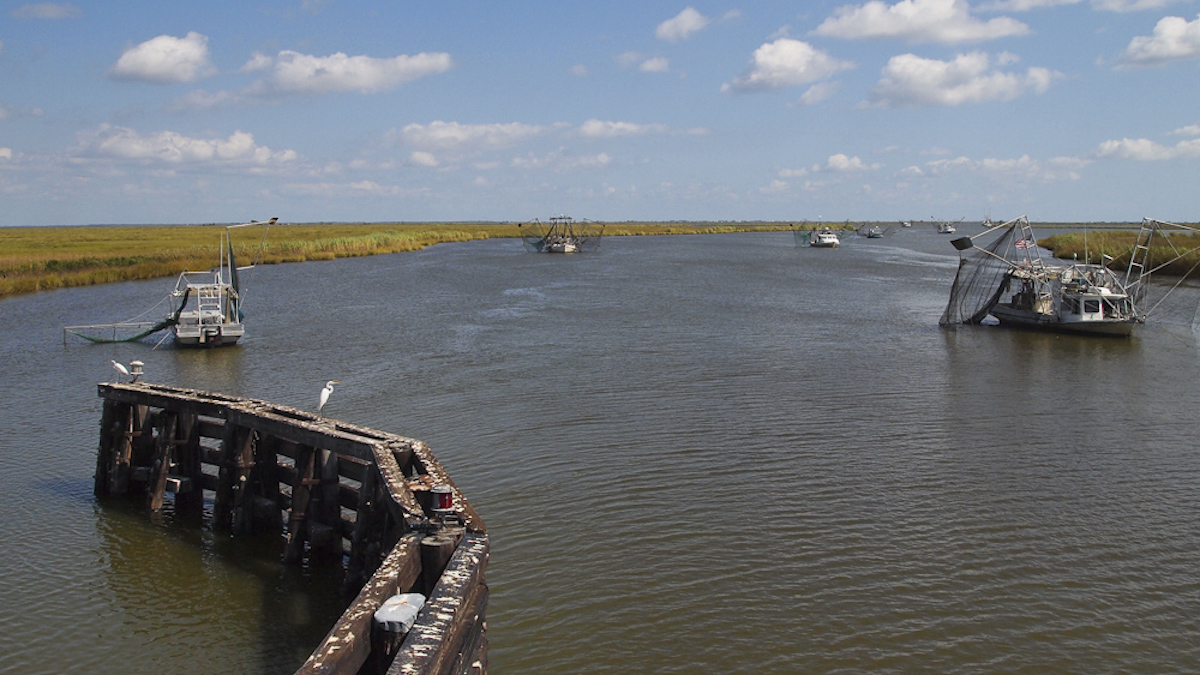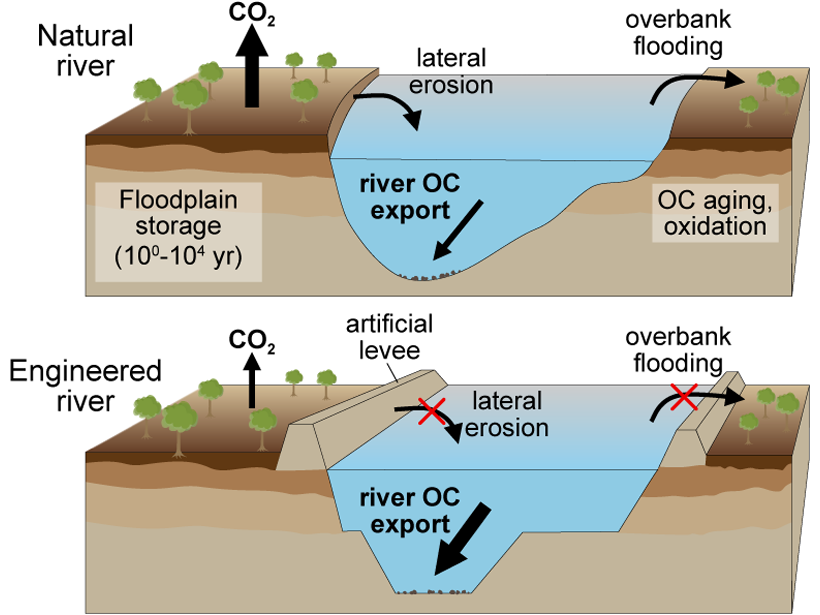New research shows that typically, less than 10% of land-building alluvium reaches the Bird’s Foot Delta region, the southernmost reach of the river, where it meets the Gulf.
Mississippi River
On the Wisconsin-Iowa Border, the Mississippi River Is Eroding Sacred Indigenous Mounds
A multimillion-dollar bank stabilization project could protect historic sites dating back thousands of years.
Mapping Sinking Land for Tribal Resilience in Louisiana
The Grand Caillou/Dulac Band of Biloxi Chitimacha Choctaw Tribe has been losing land to the sea, which could hamper efforts to gain federal recognition.
High Water Levels Cause Problems for Mississippi Shipping
Source: Geophysical Research Letters Droughts’ effect on the navigability of rivers is well documented: During the summer and fall of 2022, barges in the Mississippi River were left stranded, raising concerns about increased shipping costs for key products. Between 2015 and 2019, barges carried an average of 400 million tons of goods along the Mississippi […]
Tracking Subsidence on Deltas With Fiber-Optics
Fiberoptic strain meters capable of measuring micron-scale subsidence reveal a Holocene sediment package on the Mississippi Delta that is mostly stable.
Algorithm Detects Thousands of Missing Levees from U.S. Database
An existing levee database accounts for just one fifth of the country’s actual total levee count, limiting the study of how these embankments affect riparian ecosystem health in the United States.
How River Engineering Alters Carbon Cycling
Artificial levees in the Lower Mississippi River bypass floodplain processing and increase delivery of carbon to the ocean.
High Water: Prolonged Flooding on the Deltaic Mississippi River
Changing climate and land use practices are bringing extended periods of high water to the lower Mississippi River. New management practices are needed to protect people, industry, and the land.
It’s Time to Revise Estimates of River Flood Hazards
Accurately assessing flood hazards requires a better understanding of the feedbacks between natural and human influences on the characteristics of rivers.
Diverting the Mississippi River May Not Save Louisiana’s Coast
New research finds that man-made river diversions have previously led to land losses.










